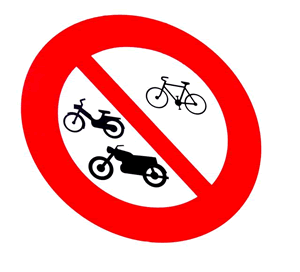Regulation, legislation and direct controls - Discussion
 In
practice the use of direct controls represents the most common approach
to pollution. Such controls can be applied both to consumers and
producers and can take a number of forms; for example, restrictions
can be imposed on smoke emissions from private homes and firms;
restrictions may be placed on all forms of building in designated
green-belt areas; minimum environmental standards may be stipulated for
air and water quality; laws may be passed to prevent drinking and
driving and the sale of alcohol and tobacco to people under a certain
age.
In
practice the use of direct controls represents the most common approach
to pollution. Such controls can be applied both to consumers and
producers and can take a number of forms; for example, restrictions
can be imposed on smoke emissions from private homes and firms;
restrictions may be placed on all forms of building in designated
green-belt areas; minimum environmental standards may be stipulated for
air and water quality; laws may be passed to prevent drinking and
driving and the sale of alcohol and tobacco to people under a certain
age.
Apart from restriction, direct controls can also be used more severely: activities generating negative externalities could be banned completely; for instance, the dumping of waste into rivers or the sea; or an activity which conferred net positive externalities on society could be made compulsory; for example, all children under the age of 16 in the country could be made by law to receive some form of education, whether it be in a state school, a private school or at home.
The main advantage of regulation is that it is the most direct way of tackling the problem of externalities; for example, market-based solutions such as taxes and tradeable emission permits provide incentives to firms to reduce their pollution levels but do not compel them to do so; as such problems as global warming and the depletion of the ozone layer are thought by many to threaten the very survival of our planet, it is argued that we cannot afford to trust our futures with policies which allow for the possibility of non-compliance. Providing legal restrictions are backed by inspections that are sufficiently regular and rigorous, they should be effective.
Against this, it is argued that in reality the policing of regulations can present great difficulties as the less environmentally conscious firms may attempt to circumvent the controls e.g. through the generation of pollution during the night. Thus an extremely large number of inspectors might have to be employed to ensure compliance.
It is also claimed that regulation can be a rather blunt, indiscriminate instrument of control; for example the setting of maximum emission limits does not take into account the fact that the cost of reducing pollution would vary considerably as between different firms, some facing high costs with others facing low costs. Thus a uniform limit applied to all firms would be an inefficient way of reducing pollution, implying as it would a high resource cost. Also it may be the case that once emission targets have been achieved, there would be no further incentive to continue to reduce pollution, as would be the case with a pollution tax.
Regulation may also give rise to the problem of regulatory capture -
those being regulated may be successful in manipulating the regulatory
body to act in accordance with the private interests of the firms
concerned, rather than in the interests of society as a whole. In the
USA there are very powerful lobbyists that operate on behalf of
industries - an example is the gun lobby that often prevents
legislation limiting the right to own a gun and which operates on
behalf of gun manufacturers.
